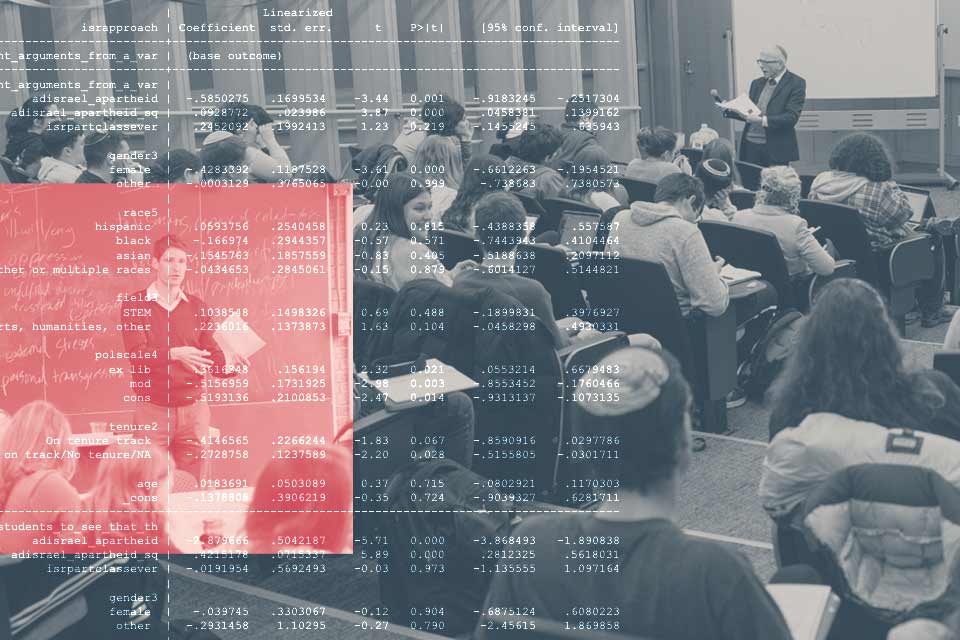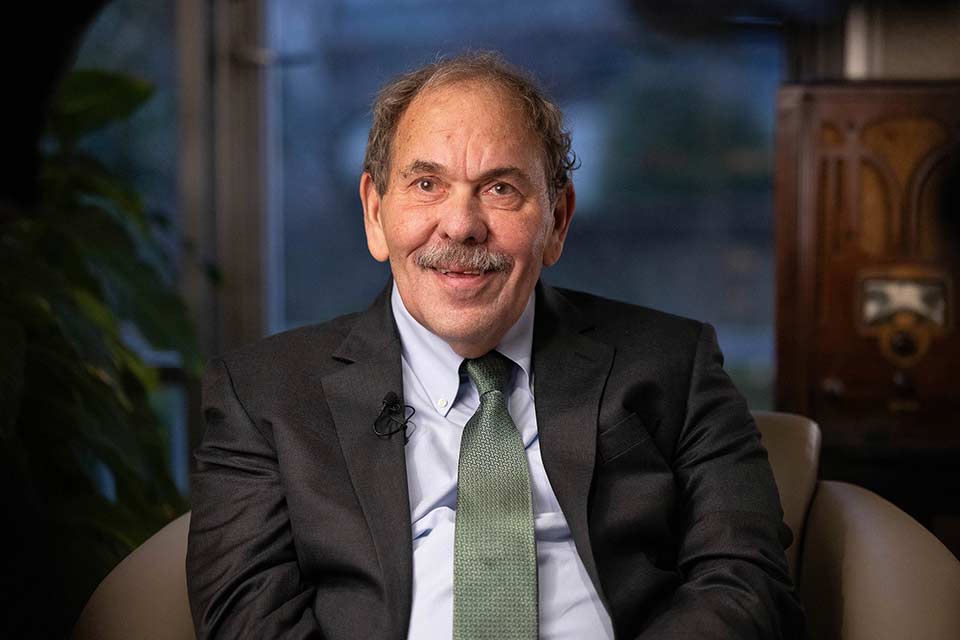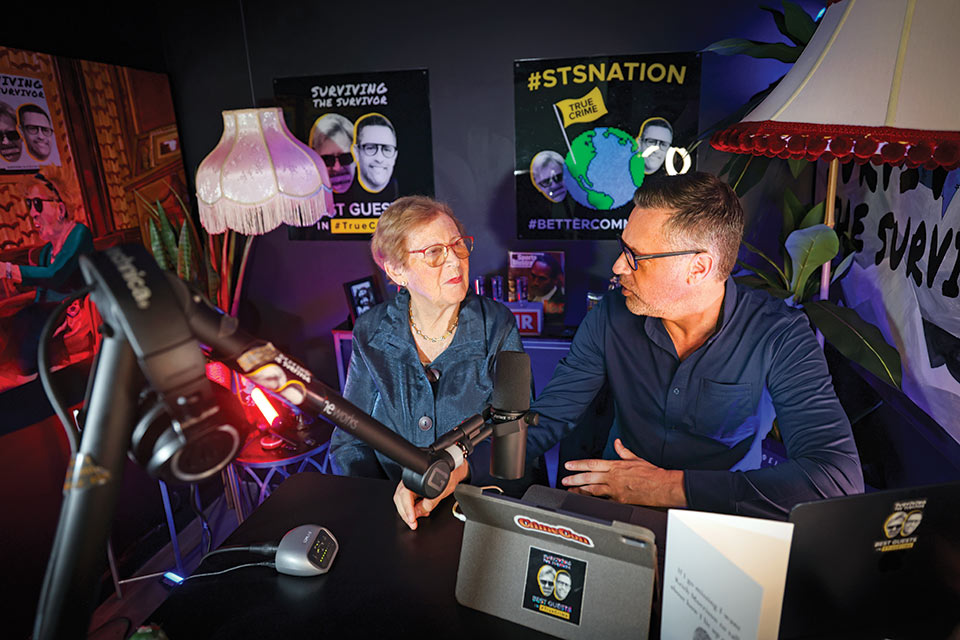Study challenges narratives about faculty political bias and antisemitism

Photo Credit: Illustration by Jessica Tanny
July 25, 2025
Amid escalating federal scrutiny over antisemitism and a perceived “woke” bias on college campuses, new research from Brandeis University’s Cohen Center for Modern Jewish Studies offers a more complex portrait of faculty viewpoints and classroom learning environments.
The report, “Ideology in the Classroom: How Faculty at U.S. Universities Navigate Politics and Pedagogy Amid Federal Pressure Over Viewpoint Diversity and Antisemitism,” draws on survey responses from over 2,300 faculty at 146 leading research universities. Its findings challenge narratives that faculty are ideologically extreme and politically aggressive in their teaching.
“Our goal in this work is not simply to call out antisemitism or political bias,” said Cohen Center director Leonard Saxe, who co-authored the study with Graham Wright and Shahar Hecht. “We sought to bring data to the table — evidence that can help inform better, more constructive solutions.”
The study follows Saxe and his team’s earlier research, which focused on students and their experiences with antisemitism on college campuses after the events of October 7, 2023.
This latest report expands the lens to faculty at a time when the federal government has launched investigations into numerous universities, suspended grants and issued sweeping guidance about restricting foreign student enrollment — all in the name of combating antisemitism and enforcing ideological diversity.
Recently, presidents of elite colleges have also faced intense scrutiny, and in some cases have lost their jobs, after testifying before Congress about antisemitic incidents on their campuses.
“Media coverage often highlights the most extreme examples,” Saxe said. “There have been some disturbing incidents — things certain faculty said or did in the classroom that clearly violated standards of academic conduct. Those actions are not okay. They wouldn’t be okay under Brandeis’ faculty handbook, and they shouldn’t be acceptable anywhere. But our research shows those cases are not representative of most faculty.”
While more than two-thirds of faculty surveyed identified as liberal, the report shows their opinions on polarizing topics are far from monolithic. On issues like immigration, gender identity and diversity, equity and inclusion (DEI), many faculty held moderate or even conservative views.
Despite all the discussion related to Israel and Palestine, fewer than one in five faculty reported engaging in activism or social media posting on the matter. For other topics, like the presidency of Donald Trump, faculty were more likely to engage in some form of activism on social media, although the majority didn't report engaging at all.
“There’s a popular belief that professors use their classrooms as political pulpits,” Saxe said. “But most are deeply immersed in their research and teaching. They are successful because they are experts in their field and don't prioritize political activism.”
Classroom behavior reflects this as well. Fewer than 10% of respondents said they would teach a controversial issue from a single perspective. In fact, when it comes to the Israel-Palestine conflict — central to recent accusations of faculty-driven antisemitism — more than three-quarters of faculty said the topic didn’t come up in class at all over the past academic year.
“One of the clearest takeaways is that faculty genuinely want to be good educators,” said Saxe. “They strive to present balanced instruction, explore topics from an array of perspectives and encourage students to think for themselves.”
The study also addresses antisemitism head-on. Only 3% of non-Jewish faculty expressed views that align with formal definitions of antisemitism, such as denying Israel’s right to exist, while 7% expressed views considered hostile toward Jews.
Importantly, these views tended to cluster at the ideological extremes: The far left was more likely to express anti-Israel sentiment, while the far right was more likely to embrace traditional antisemitic stereotypes.
“There’s a U-shaped relationship between ideology and antisemitism,” Saxe explained. “We see it on both ends of the political spectrum — not just left or right.”
The authors argue that universities and policymakers must resist the urge to paint faculty with a broad brush. Punitive measures aimed at ideological conformity risk alienating the very people who are best positioned to improve campus climate.
Rather than imposing ideological tests or sweeping reforms, Saxe and his colleagues advocate for empowering faculty and not chilling academic expression.
“The truth is, higher education is in a fragile place,” Saxe concluded. “Even the wealthiest institutions are feeling the pressure.
“At the end of the day, we want faculty to feel empowered. We want policymakers to recognize that, no matter their political orientation, most faculty share the same goals: to educate, to challenge and to support students. That’s the common ground we should build on.”


